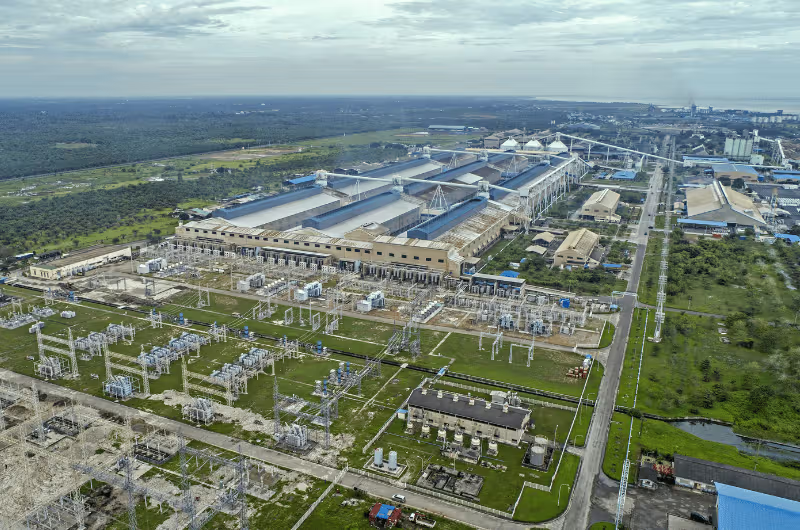The Bali Provincial Government, in collaboration with Bank Indonesia (BI), has proposed 14 strategic projects in downstream industries and green economy to domestic and international investors through the Bali Jagadhita Investment Forum 2025.
The forum aims to diversify Bali’s investment portfolio, which has long been dominated by the tertiary sector.
According to Indra Gunawan Sutarto, Advisor to the BI Bali Representative Office, these 14 curated projects have been compiled into a digital investment catalog, accessible at: bit.ly/Catalog_BaliJagadhita2025.
The total estimated value of these projects is IDR 1.84 trillion, spread across various regencies and cities.
Key projects offered include:
- Development of an electric vehicle ecosystem in Denpasar
- Revitalization of Letkol Wisnu Airport in Buleleng
- Integrated utility network in Badung
- Arabica coffee development in Bangli
- Singamandawa Kintamani and Gianyar Botanical Garden tourism areas
- Smart rest area at Rambut Siwi in Jembrana
- Solar power plant in Karangasem
- Teletubbies Hill and seaweed farming in Nusa Penida
- Mackerel fish processing center in Kusamba
- Revitalization of Gadarata Singasana Central Market in Tabanan
- Bali 6.0 Integrated Industrial Zone in Jembrana
- Ayung Water Supply System in Denpasar, Badung, Gianyar, and Tabanan
Indra emphasized that the catalog was prepared comprehensively to improve access to information and attract broader investment.
It was officially handed over by the Kerthi Bali Sadhana Investment Center (PIKBS) to the Bali Provincial Government as a coordinated promotion effort.
Bali targets IDR 45.6 trillion in realized investment for 2025, up from IDR 36.5 trillion in 2024, which exceeded previous targets and created over 53,000 jobs.
According to Antarabali, However, around 81.5% of investment is still concentrated in southern Bali (Badung, Denpasar, Gianyar), and 94% is in the tertiary sector, such as real estate and office buildings.
Therefore, more focus is needed on primary and secondary sectors like agriculture, fisheries, and renewable energy.
The central government, through Government Regulation No. 24 of 2019, has committed to providing incentives and ease of doing business for investors who meet certain criteria, such as increasing community income, preserving the environment, transferring technology, creating jobs, utilizing local resources, boosting regional GDP, and export orientation.
Dedi Latif, Deputy for Investment Planning at the Ministry of Investment, emphasized that the keys to investment success are licensing, regulation, and competitiveness.
He highlighted the importance of downstream industries for increasing the added value of local economies.
Bali, he noted, has strong potential in creative industries (crafts, fashion), agro-processing, and sustainable tourism such as health tourism and ecotourism.
Erwin Soeriadimadja, Head of the BI Bali Office, projected that Bali’s economy would remain solid in 2025 with growth between 5.0–5.8% (yoy).
He credited this to controlled inflation, strong business optimism, and improved regional competitiveness.
Erwin also stressed the importance of cross-sector collaboration, including strategic partnerships between large investors and MSMEs, infrastructure development, and human capital improvement.
According to Bisnisbali, “Bali should not only be a tourism destination but also a center for green and competitive investment,” he said.
Economists welcomed the investment catalog as a strategic innovation to overcome common investment challenges, such as lack of coordination and limited access to reliable information.
According to Energika.id, The catalog is expected to serve as a practical tool to promote Bali’s broader economic potential beyond tourism particularly in energy, agriculture, fisheries, and local resource-based industries.
Moreover, both the Bali Government and Bank Indonesia are committed to ensuring that incoming investments align with sustainable development principles, consistent with Tri Hita Karana, the Balinese philosophy of harmony between humans, nature, and the divine.
Through this initiative, Bali aims to evolve from a tourist destination into a hub for green and sustainable investment, driving inclusive regional growth, job creation, and community prosperity.
Sources: Antarabali, Energika.id, Bisnisbali. Featured Image.

